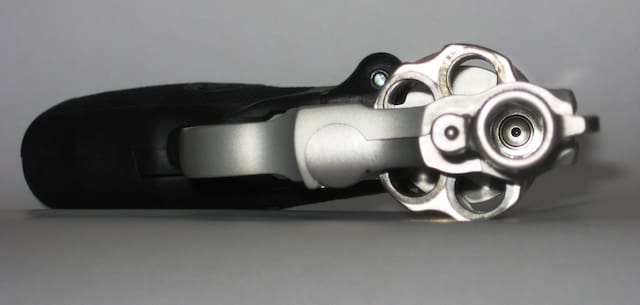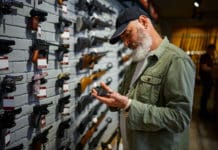But why let the facts stand in the way of a good story? Yes, despite the writer’s admission that there is no statistical evidence to suggest that elderly gun owners are particularly dangerous to themselves or others, the Times’ Health section gives plenty of ink to worries about Guns in Frail Hands. The caveat arrives in paragraph 16, long after a suspiciously anonymous story about a son worried about the .38 owned by a “90-year-old widow with mild Alzheimer’s disease.” Oh, and the provision of loads of misleading data links drawn from various and sundry sources. In fact, this is another “issue” that would benefit from my pal Henry’s “round it down to zero” analysis. But then, Henry isn’t an inflammatory proponent of gun control . . .
She says she needs it for protection. Her son is afraid she will get angry or confused and shoot someone — possibly him. “I’d rather eat barbed wire than deal with this,” said her son, Chuck, who asked that his last name not be used to avoid drawing the retirement community into his dispute with his mother.
Like cars, guns symbolize independence and individualism to many Americans. In states where gun ownership is a way of life, the elderly population is as likely as anyone to be armed and, in the view of many family members and professionals who care for them, possibly dangerous.
Note to Times scribe Dale Russakoff: I hope they ARE dangerous. Otherwise, what’s the point? And don’t forget, even Charlton Heston said it was OK to take his guns from his cold, dead hands. Happens to all us eventually, I’m told.
The federal Brady Act bars gun sales to anyone adjudicated mentally “defective,” a legal process few children want to put parents through. Even if they did, most older people bought their guns years ago, and Dennis Henigan, a vice president of the Brady Center to Prevent Gun Violence, said there is no “systematic way for the authorities to find out if they have guns.”
If only, eh?




